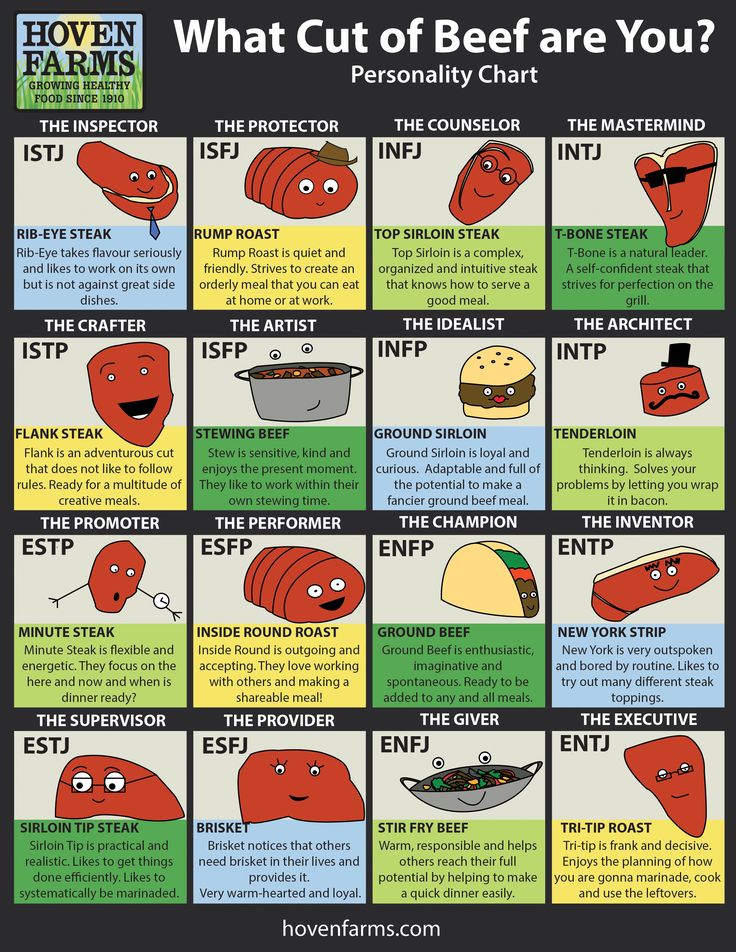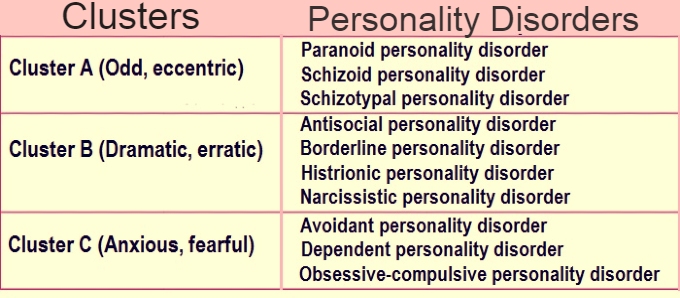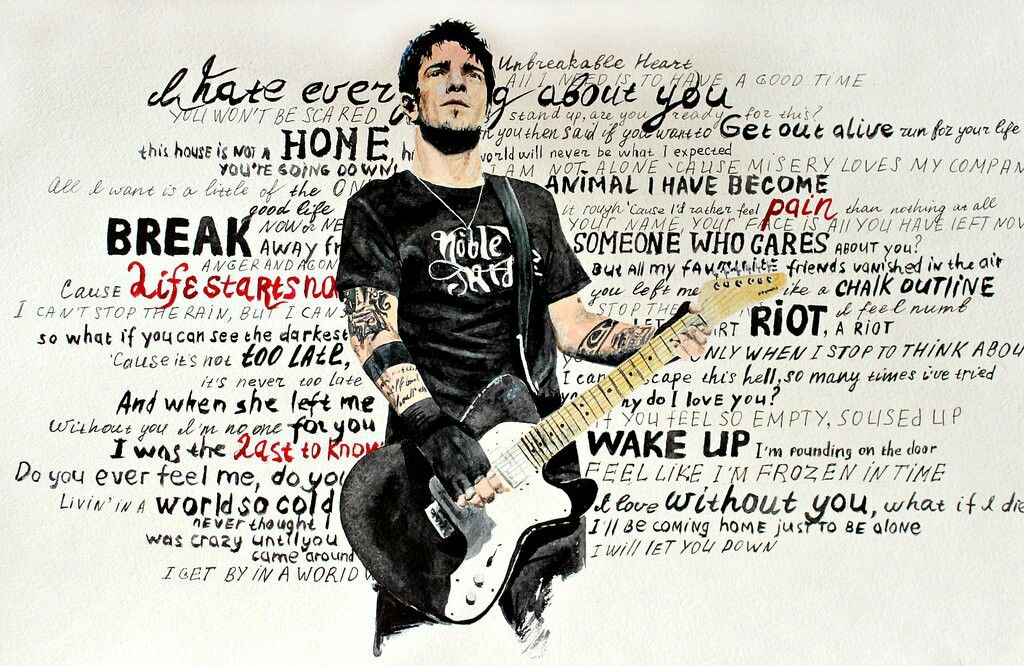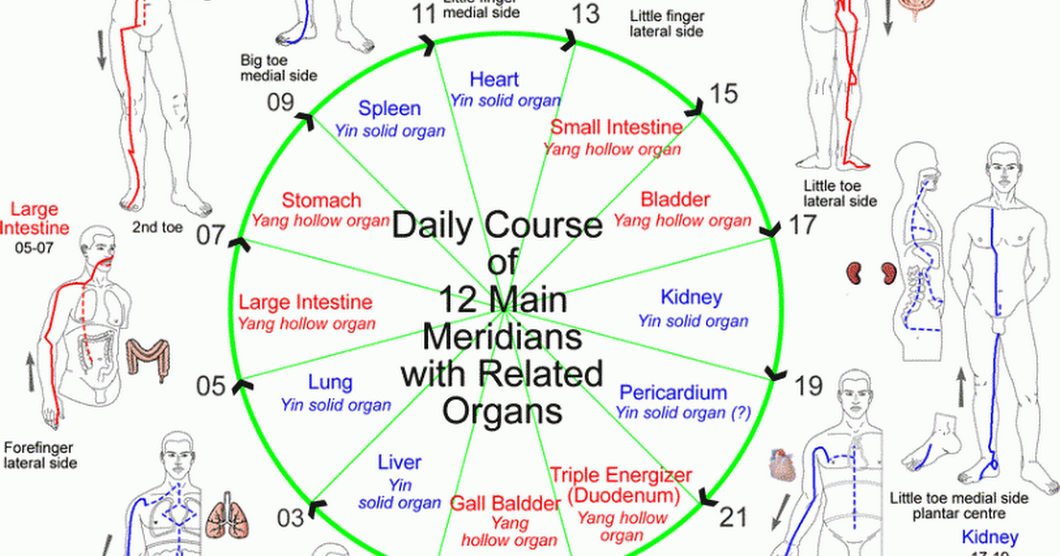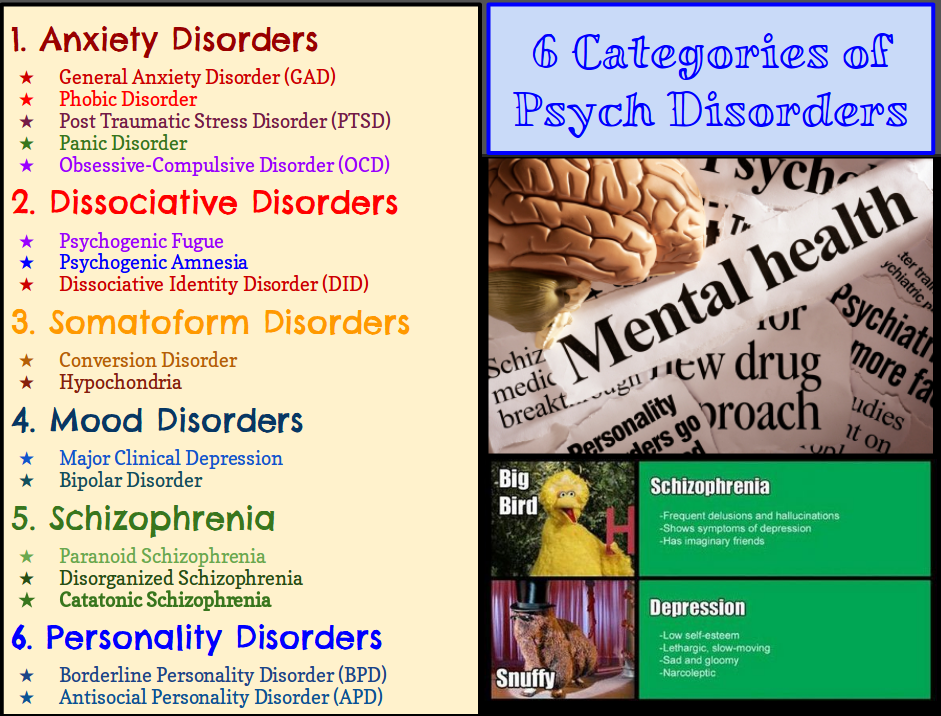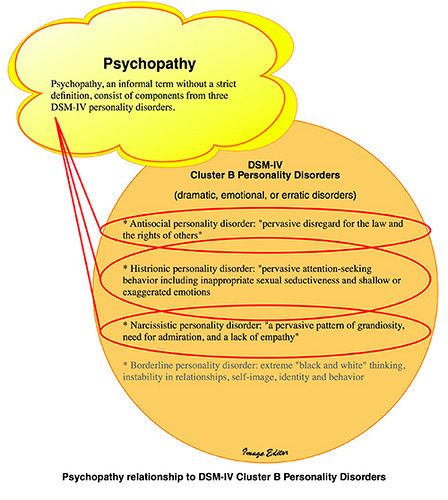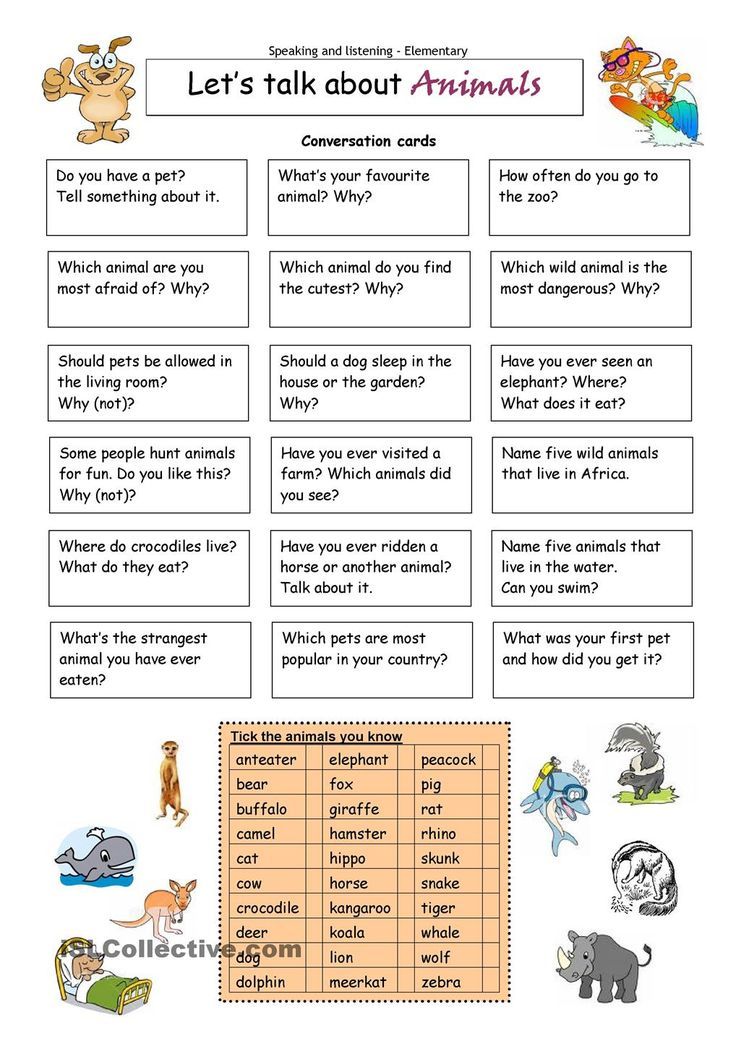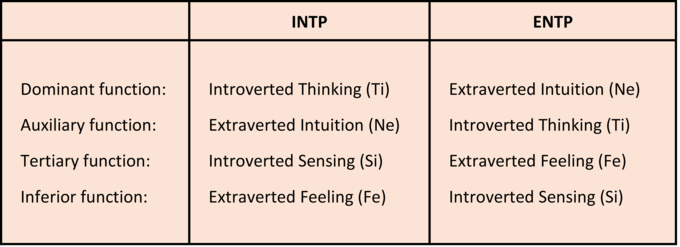Idealist champion personality type
Learn about the Idealist Champion
Portrait of the
Idealist Champion ENFP
passionate
Champions have a wide range and variety of emotions, and a great passion for novelty. It is important for them to embark on a journey that feels fresh, new, original, and unique. Anything less feels stale and something that they cannot be passionate about. Their feelings are powerful, and so they seek to inspire and motivate others to feel as they do. Champions inspire because they have first been inspired. Their passion can only be displayed when it is the natural overflow of what resides within.
exploring
Champions have a probing nature, always exploring to find the idea or opportunity which holds promise. Believing that the world is interconnected, people are interrelated, and ideas are interdependent, these natural surveyors look for patterns and relationships. Their continual exploration makes them exciting to be around. Once people or projects become routine, Champions are likely to lose interest.
For "what might be" is always more fascinating than "what is."
networking
People-to-people work is essential for Champions. They are outstanding in getting people together, and are good at initiating meetings and conferences. They are good with people and make extensive use of their interpersonal powers. They usually have a wide range of personal contacts, expending energy in maintaining both professional and personal relationships. Champions prefer to approach relationships in an inclusive and collaborative fashion, where everyone has a voice, and mutual respect is paramount.
enthusiastic
Champions are tireless in conversing with others. Their enthusiasm is boundless and is often contagious, making them the most vivacious of all. Their irrepressible expressiveness compels them to be the champions of causes, and their exuberance emanates from within. Their enthusiasm is received by others as an authentic expression. For Champions, "what they do" is not mere activity, it is an extension of "who they are"—it is tied to their identity.
authentic
Champions strive toward a kind of spontaneous personal authenticity. This intention always to be themselves is usually communicated both verbally and nonverbally to others, who find it quite attractive. They feel most alive when they are authentically expressing themselves and connecting with others. When Champions do not feel connected in a personal way, they can feel as though their efforts are somehow disingenuous. Their yearning for authenticity is not just for themselves, but they seek it out in others as well.
eclectic
Champions are always seeking to find new outlets for their inspirations. They find themselves scattered with many interests. This allows them to pull together elements from unusual places to create an integrated juxtaposition. They are unconventional and possess a nonconformist nature. This creativity empowers them to be great at having an alternative perspective. Champions are dreamy and highly imaginative, leading them down various paths which eventually merge together in ways that are meaningful for them.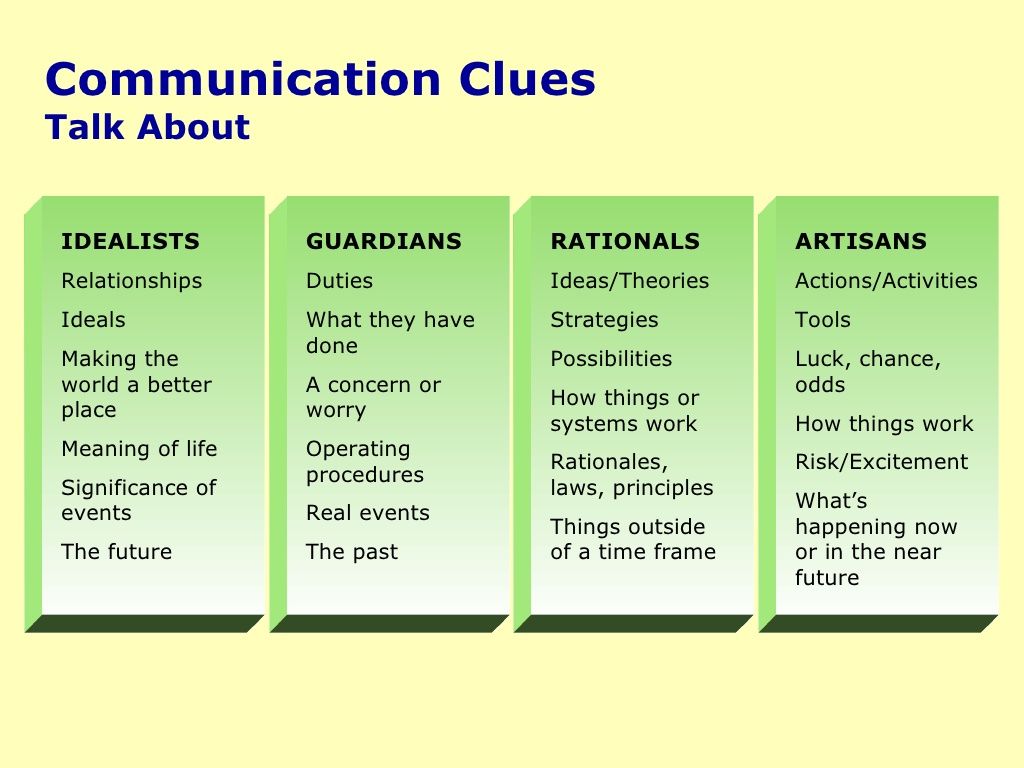
Keirsey
Idealists share the following core characteristics
Tend to be...
giving, trusting, spiritual, and they are focused on personal journeys and human potentials
Pride themselves...
on being loving, kindhearted, and authentic
They make...
intense mates, nurturing parents, and inspirational leaders
They are...
enthusiastic, they trust their intuition, yearn for romance, seek their true self, prize meaningful relationships, and dream of attaining wisdom
Idealists, as a temperament, are passionately concerned with personal growth and development. Idealists strive to discover who they are and how they can become their best possible self -- always this quest for self-knowledge and self-improvement drives their imagination. And they want to help others make the journey. Idealists are naturally drawn to working with people, and whether in education or counseling, in social services or personnel work, in journalism or the ministry, they are gifted at helping others find their way in life, often inspiring them to grow as individuals and to fulfill their potentials.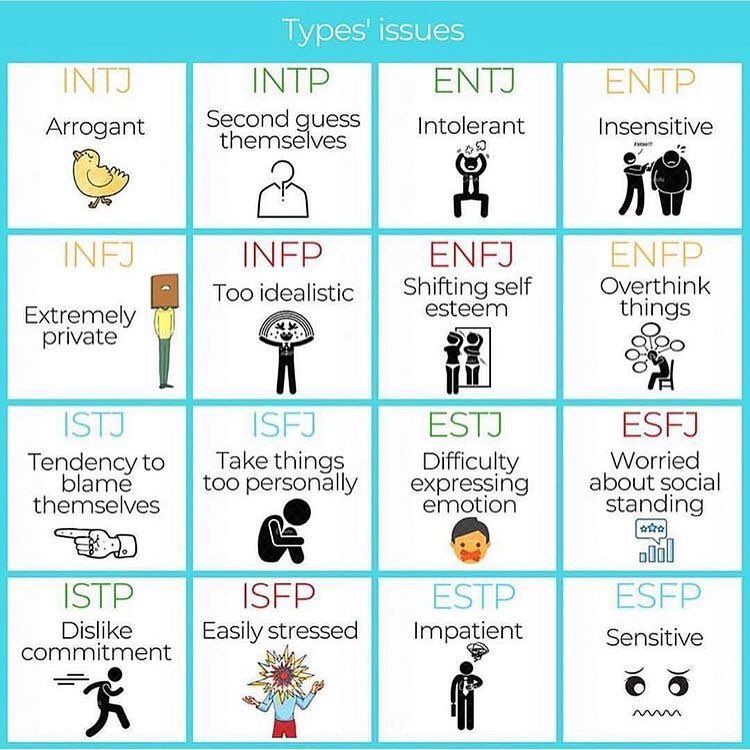
Idealists are sure that friendly cooperation is the best way for people to achieve their goals. Conflict and confrontation upset them because they seem to put up angry barriers between people. Idealists dream of creating harmonious, even caring personal relations, and they have a unique talent for helping people get along with each other and work together for the good of all. Such interpersonal harmony might be a romantic ideal, but then Idealists are incurable romantics who prefer to focus on what might be, rather than what is. The real, practical world is only a starting place for Idealists; they believe that life is filled with possibilities waiting to be realized, rich with meanings calling out to be understood. This idea of a mystical or spiritual dimension to life, the "not visible" or the "not yet" that can only be known through intuition or by a leap of faith, is far more important to Idealists than the world of material things.
Highly ethical in their actions, Idealists hold themselves to a strict standard of personal integrity.
They must be true to themselves and to others, and they can be quite hard on themselves when they are dishonest, or when they are false or insincere. More often, however, Idealists are the very soul of kindness. Particularly in their personal relationships, Idealists are without question filled with love and good will. They believe in giving of themselves to help others; they cherish a few warm, sensitive friendships; they strive for a special rapport with their children; and in marriage they wish to find a "soulmate," someone with whom they can bond emotionally and spiritually, sharing their deepest feelings and their complex inner worlds.
Idealists are relatively rare, making up no more than 15 to 20 percent of the population. But their ability to inspire people with their enthusiasm and their idealism has given them influence far beyond their numbers.
There are four types of Idealists
Although all Idealists share core characteristics, not all of them are the same. In Keirsey's observations, he noted that there were four kinds of Idealists. They are: the Idealist Champions (ENFP), Idealist Healers (INFP), Idealist Teachers (ENFJ), and Idealist Counselors (INFJ).
In Keirsey's observations, he noted that there were four kinds of Idealists. They are: the Idealist Champions (ENFP), Idealist Healers (INFP), Idealist Teachers (ENFJ), and Idealist Counselors (INFJ).
Teachers have a natural talent for leading students or trainees toward learning, or as Idealists like to think of it, they are capable of calling forth each learner's potentials. But perhaps their greatest strength lies in their belief in their students. Teachers look for the best in their students, and communicate clearly that each one has untold potential, and this confidence can inspire their students to grow and develop more than they ever thought possible.
Counselors have an exceptionally strong desire to contribute to the welfare of others, and find great personal fulfillment interacting with people, nurturing their personal development, guiding them to realize their human potential. Although they are happy working at jobs (such as writing) that require solitude and close attention, Counselors do quite well with individuals or groups of people, provided that the personal interactions are not superficial, and that they find some quiet, private time every now and then to recharge their batteries.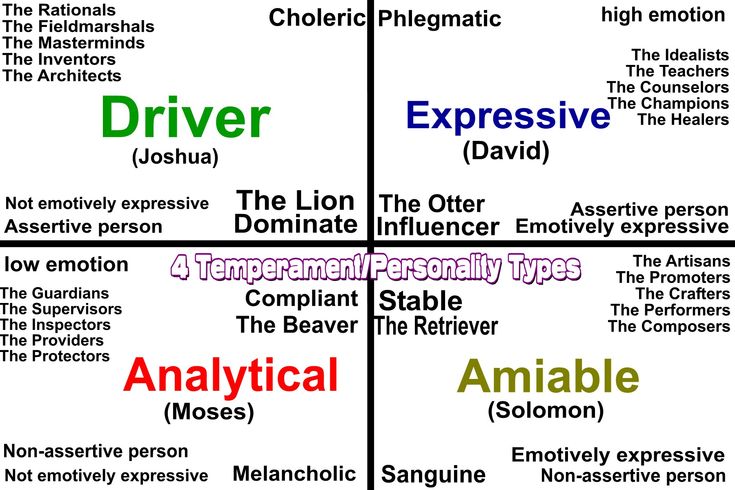
Champions are rather rare, say three or four percent of the population, but even more than the others they consider intense emotional experiences as being vital to a full life. Champions have a wide range and variety of emotions, and a great passion for novelty. They see life as an exciting drama, pregnant with possibilities for both good and evil, and they want to experience all the meaningful events and fascinating people in the world.
Healers present a calm and serene face to the world, and can seem shy, even distant around others. But inside they're anything but serene, having a capacity for personal caring rarely found in the other types. Healers care deeply about the inner life of a few special persons, or about a favorite cause in the world at large. And their great passion is to heal the conflicts that trouble individuals, or that divide groups, and thus to bring wholeness, or health, to themselves, their loved ones, and their community.
INFP - Introduction to Typology
INFP is covered here.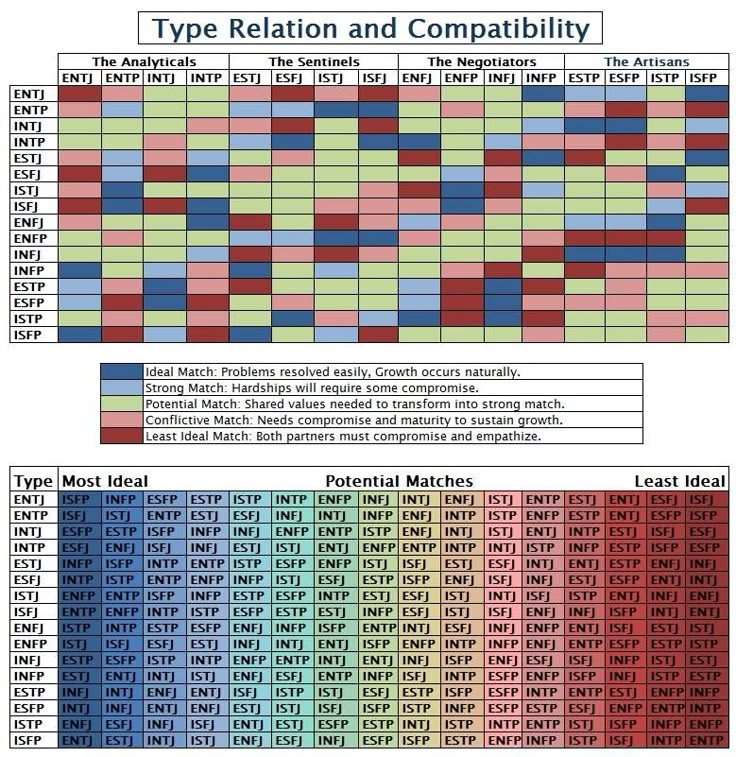 Mediator - Mediator (by Myers-Briggs) .
Mediator - Mediator (by Myers-Briggs) .
ISTJ
Logistician
Practical and factual people whose reliability is unwavering.
By Keirsey:
type: Inspector (ISTJ) Inspector ,
Role: Administrator (STJ) Administrator,
temperament: Guardian (SJ)
According to Kroeger:
3 Organizer - Organizer
ISFJ
Defender - Defender
Very loyal and warm defenders, always ready to protect their loved ones.
By Keirsey:
type: Protector (ISFJ) Protector ,
role: Conservator (SFJ) Guardian,
temperament: Guardian (SJ)
According to Kroeger: Facilitator
INFJ
Advocate
Quiet and mystical, but very inspiring and tireless idealist.
By Keirsey:
type: Counselor (INFJ) Counselor ,
role: Mentor (NFJ) Mentor,
temperament: Idealist (NF) Idealist.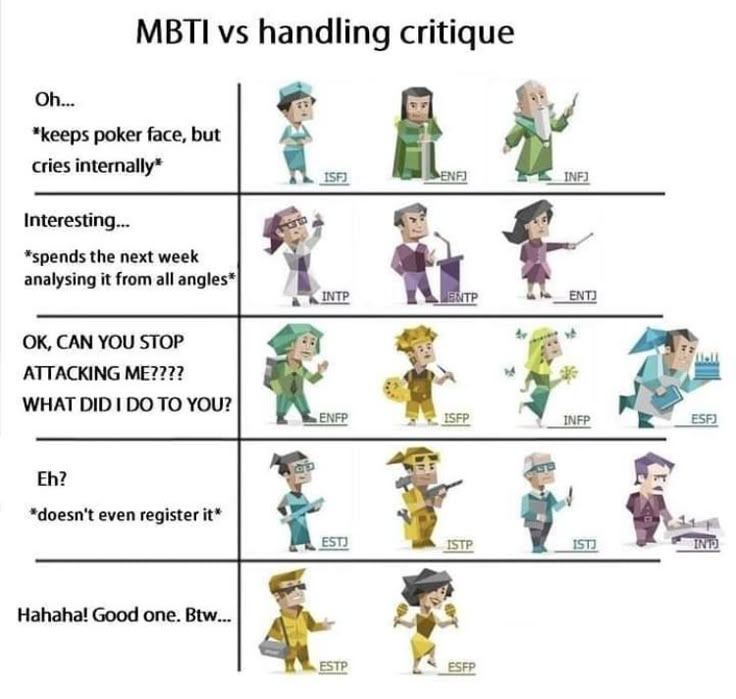
According to Kroeger: Inspirer
INTJ
Architect
Creative and strategic thinkers with a plan for everything.
By Keirsey:
type: Mastermind (INTJ) Think tank
Role: Coordinator (NTJ) Coordinator,
temperament: Rational (NT) Rational.
According to Kroeger: Visionary
ISTP
Virtuoso - Virtuoso
Bold and practical experimenters, masters of all kinds of tools.
By Keirsey:
type: Crafter (ISTP) Master ,
Role: Operator (STP) Operator,
temperament: Artisan (SP) Artisan.
According to Kroeger: Crafter - Master
ISFP
Adventurer - Adventurer
Flexible and charming artists, always ready to explore and experience something new.
By Keirsey:
type: Composer (ISFP) Composer ,
Role: Entertainer (SFP) Entertainer,
temperament: Artisan (SP) Artisan.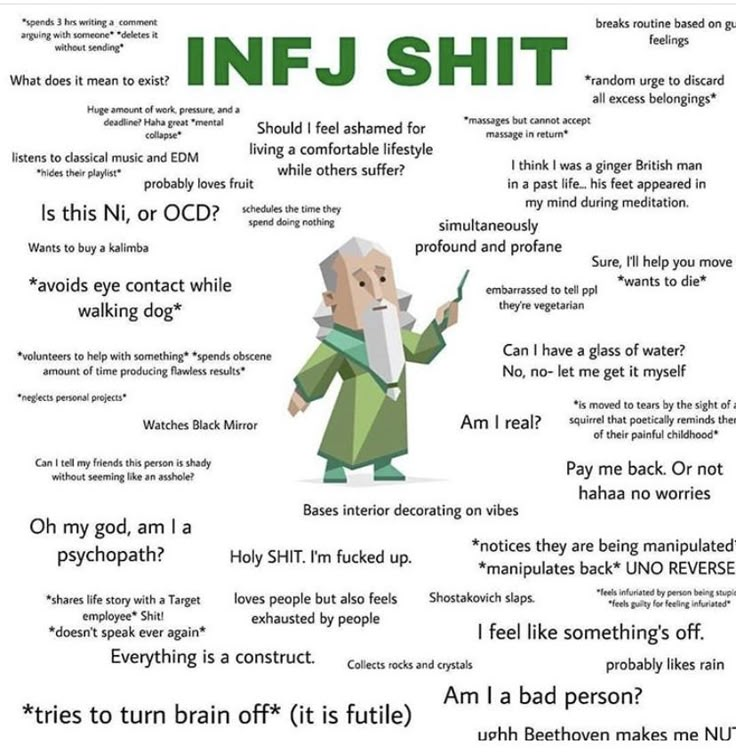
According to Kroeger: Dreamer - Inventor
INFP
Mediator - Mediator
Poetic, kind and altruistic people, always ready to help a good cause.
By Keirsey:
type: Healer (INFP) Role: Advocate (NFP) Lawyer,
temperament: Idealist (NF) Idealist.
According to Kroeger: Muser - Contemplative
INTP
Logician - Logician
Innovative inventors with an unquenchable thirst for knowledge.
By Keirsey:
type: Architect (INTP) Architect ,
Role: Engineer (NTP) Engineer,
temperament: Rational (NT) Rational.
According to Kroeger: Idea Mill - Analyst
ESTP
Entrepreneur - Entrepreneur
Smart, energetic and very insightful people who really enjoy living on the edge. nine0005
By Keirsey:
type: Promoter (ESTP) Promoter ,
Role: Operator (STP) Operator,
temperament: Artisan (SP) Artisan.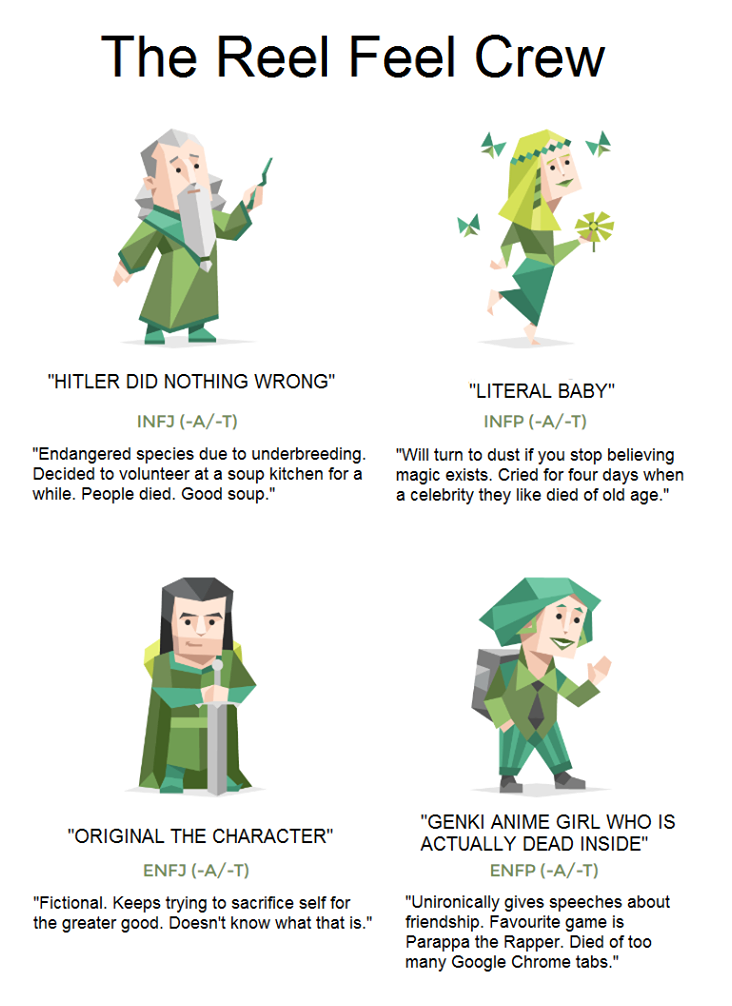
According to Kroeger: Adventurer - Fidget
ESFP
Entertainer - Entertainer
Spontaneous, energetic and enthusiastic people - life never gets bored around them.
By Keirsey:
type: Performer (ESFP) Performer ,
Role: Entertainer (SFP) Entertainer,
temperament: Artisan (SP) Artisan.
According to Kroeger: Entertainer - Animator
ENFP
Campaigner - The soul of the company
Enthusiastic, creative and sociable free spirits who can always find a reason to smile.
By Keirsey:
Type: Champion (ENFP) Champion ,
Role: Advocate (NFP) Lawyer,
temperament: Idealist (NF) Idealist. nine0005
According to Kroeger: Socializer - Mediator
ENTP
Debater - Debater
Smart and curious thinkers who cannot resist an intellectual challenge.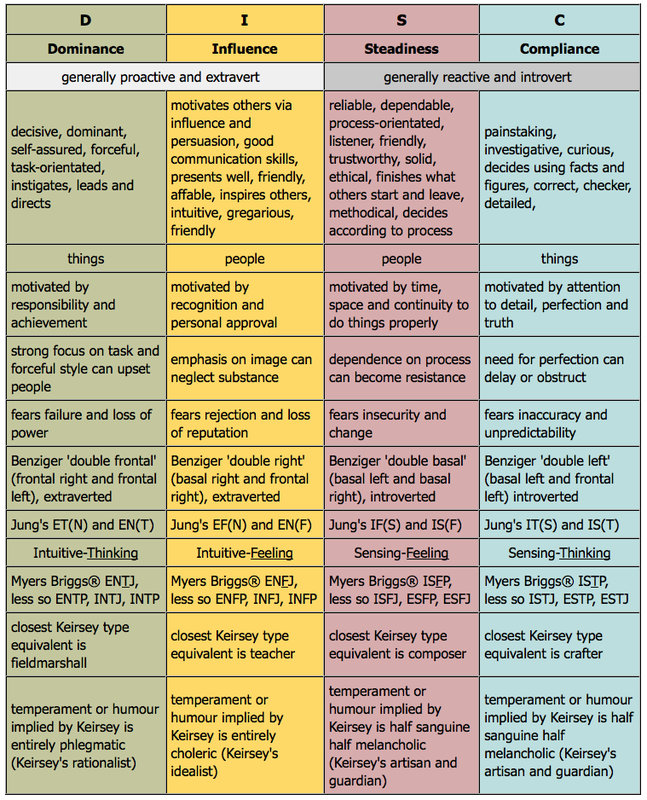
By Keirsey:
type: Inventor (ENTP) Inventor ,
Role: Engineer (NTP) Engineer,
temperament: Rational (NT) Rational.
According to Kroeger: Brainstormer - Inventor
ESTJ
Executive - Manager
Superb administrators who excel at managing things and people.
By Keirsey:
Type: Supervisor (ESTJ) Supervisor ,
Role: Administrator (STJ) Administrator,
temperament: Guardian (SJ)
According to Kroeger: Realist - Realist
ESFJ
Consul - Consul
Extremely caring, social and popular people, always ready to help. nine0005
By Keirsey:
Type: Provider (ESFJ) Provider ,
role: Conservator (SFJ) Guardian,
temperament: Guardian (SJ)
According to Kroeger: Teacher - Teacher
ENFJ
Protagonist - Hero
Charismatic and inspiring leaders who can hypnotize their listeners.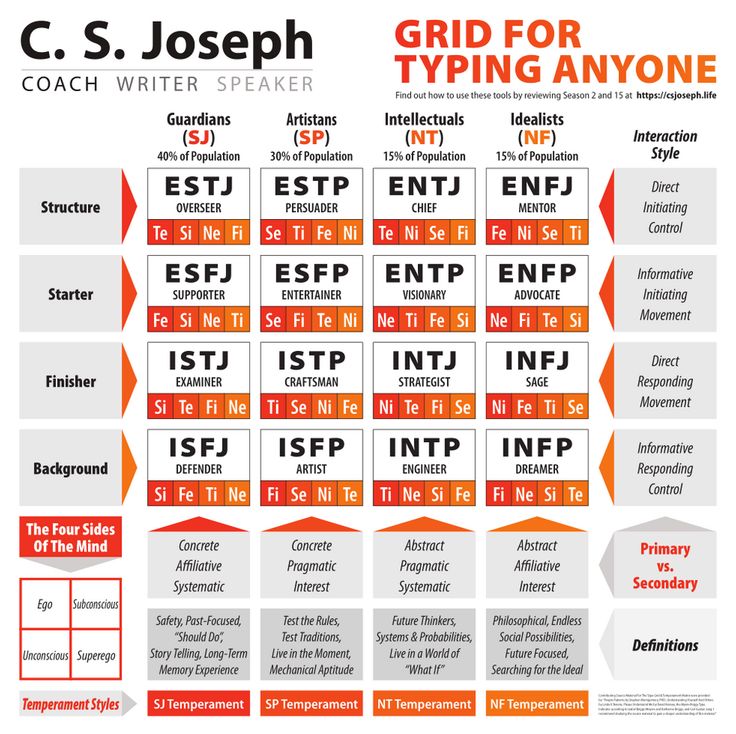
By Keirsey:
Type: Teacher (ENFJ) Teacher ,
Role: Mentor (NFJ) Mentor,
temperament: Idealist (NF) Idealist.
According to Kroeger: Persuader
ENTJ
Commander
Courageous, creative and strong-willed leaders who always find a way or create it.
By Keirsey:
type: Fieldmarshal (ENTJ) Field Marshal ,
Role: Coordinator (NTJ) Coordinator,
temperament: Rational (NT) Rational.
According to Kroeger: Commander - Commander
K.G. concepts Jung
According to the basics of Jung's typology, the INFP type has:
Installation type - introversion .
Perception function - intuition .
Judgment function - feeling (ethics).
Recall that Jung singled out eight psychological types, according to the division into two attitudes (introversion and extraversion) and four functions (thinking, feeling, feeling and intuition).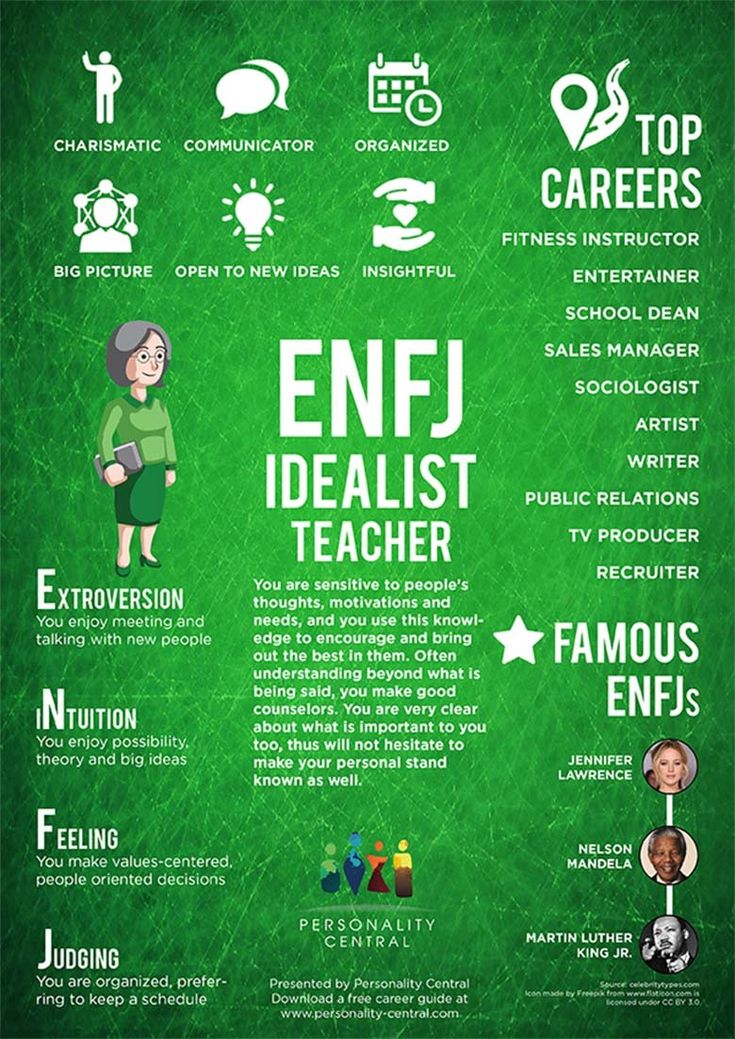 nine0005
nine0005
Let us recall the concepts of plant data and functions according to K.G. Jung.
The introversion of is the turning of the libido inward (on one's own inner world). By libido, Jung understood psychic energy in general, and not just sexual energy, as Freud believed.
Initially abstracting attitude to the surrounding world.
The most important decisions and actions are determined not by objective circumstances, but by the subjective view that intervenes between it and the objectively given. nine0005
An introvert does not strive to adapt to the world around him, thereby being less adapted to life than an extrovert.
Usually these are closed, difficult to recognize, often shy natures.
The danger for an introvert is that he can go too deep into himself and lose touch with the outside world.
The introverted type constantly needs a lot of inner work to be able to defend himself against objects.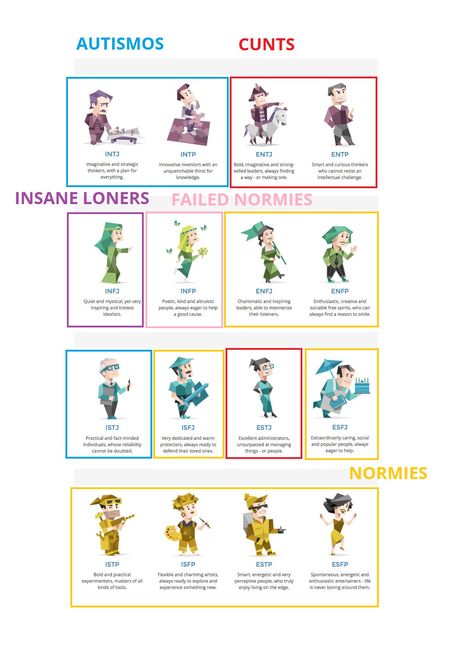 Therefore, a typical form of neurosis for him is psychasthenia, a disease characterized, on the one hand, by great sensitivity, and on the other hand, by great exhaustion and chronic fatigue. nine0005
Therefore, a typical form of neurosis for him is psychasthenia, a disease characterized, on the one hand, by great sensitivity, and on the other hand, by great exhaustion and chronic fatigue. nine0005
Intuition is that psychological function which conveys perception to the subject in an unconscious way. That is, this is a ready-made idea of an object, formed in our minds from nowhere.
The intuitive type suppresses his sensation most of all, because sensation is most capable of hindering intuition. Recall that sensation is that psychological function that perceives physical irritation. That is, this perception is accomplished through the senses. nine0005
Normally, sensation and intuition are in compensation. In the extreme case, the sensation is completely repressed into the unconscious, causing a neurotic disorder.
Feeling is that psychological function which gives the content a certain value in the sense of accepting or rejecting it ("pleasure" or "displeasure").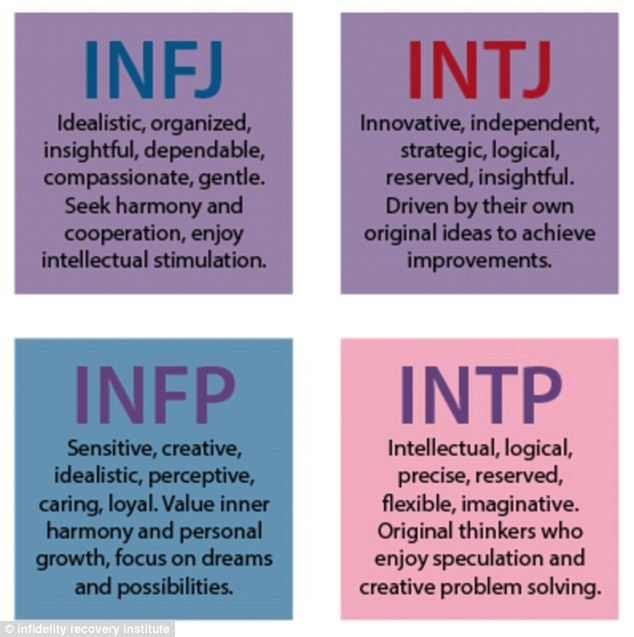 The feeling is based on value judgments: good - bad, beautiful - ugly.
The feeling is based on value judgments: good - bad, beautiful - ugly.
The feeling type suppresses thinking the most, because thinking is most capable of hindering feeling. Let us recall that thinking is that psychological function which, following its own laws, brings the data of the content of representations into a conceptual connection. Thinking is occupied with truth and based on impersonal, logical, objective criteria. nine0005
Normally, thinking and feeling are in compensation. In the extreme case, thinking is completely forced into the unconscious, causing a neurotic disorder.
Myers-Briggs Dichotomies
During the Second World War, American women Catherine Briggs and her daughter Isabelle Briggs-Myers proposed to determine the main function using the MBTI test (Myers-Briggs Type Indicator) to determine individual personal preferences at work. Why were invented, or rather converted from Jungian terms, 4 scales (dichotomies) on which the personality is studied.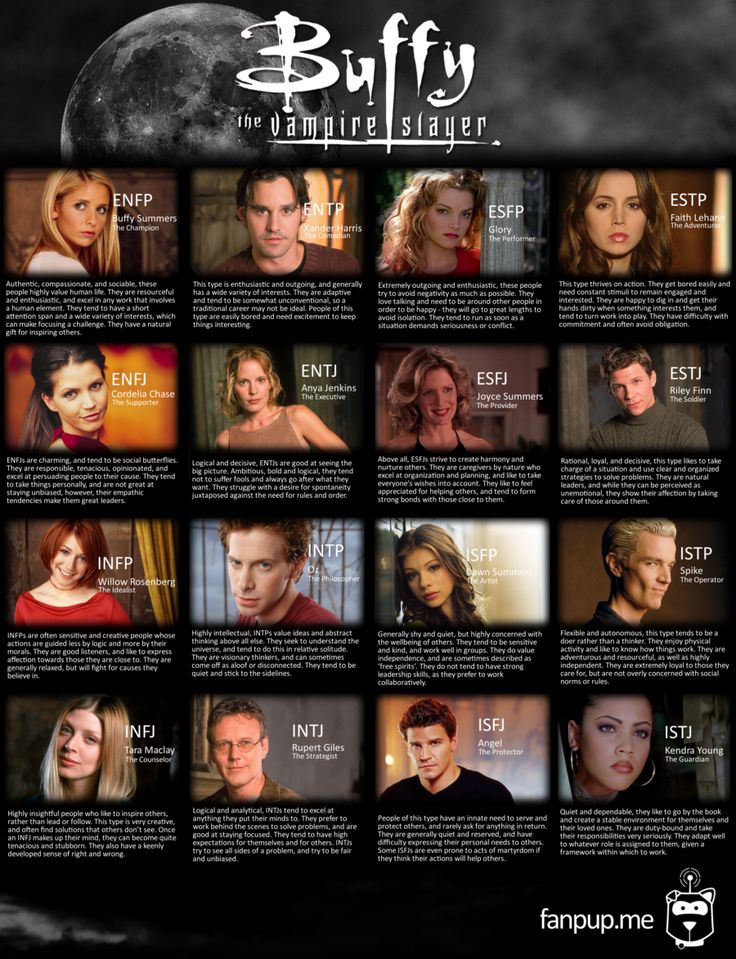 Answers to the test questions allow you to determine which "pole" for each dichotomy a person is more inclined to. As a result, 16 types are already formed, because in addition to the main function, the type is divided into 2 more types according to the auxiliary function. nine0005
Answers to the test questions allow you to determine which "pole" for each dichotomy a person is more inclined to. As a result, 16 types are already formed, because in addition to the main function, the type is divided into 2 more types according to the auxiliary function. nine0005
This type of preference in dichotomies is as follows:
Е (Extraversion, extraversion) - orientation to external objects. Such people are open, more active, easily communicate with strangers. They like to spend time in the outer world of people and things rather than in the inner world of ideas and images.
Orientation of consciousness
I (Introversion, introversion) — orientation to your inner world. Such people are closed, less active, communication with strangers is tiring and wastes energy. They like to spend time in the inner world of ideas and images rather than in the outer world of people and things.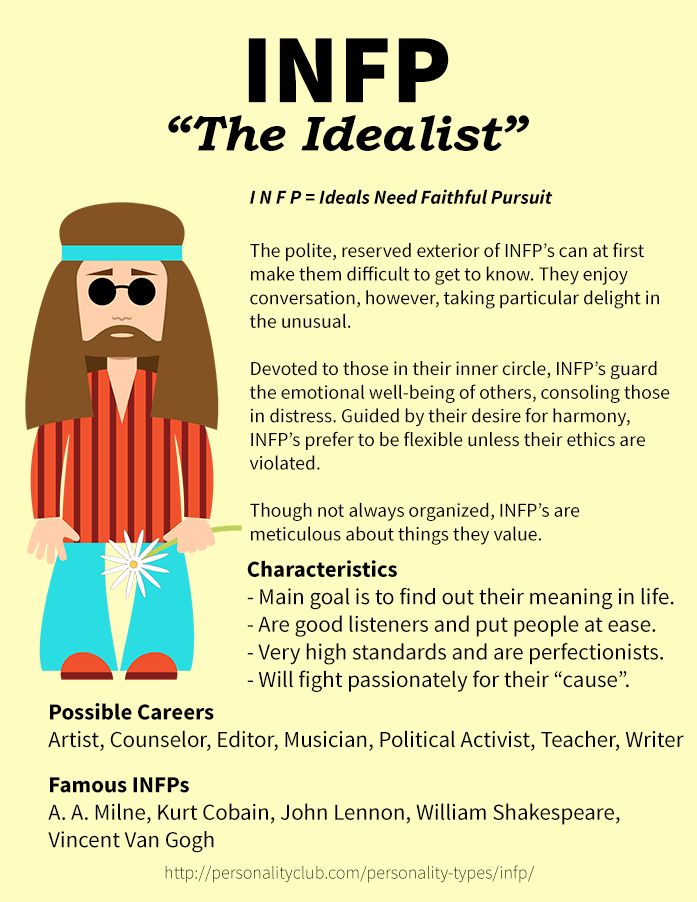 nine0005
nine0005
S (Sensing, feeling) - orientation based on specific details, facts and experience gained. Such people are more practical than theoretical. They are absorbed by the real world around them, while they may not see the whole picture and the development of the situation in time. They prefer to observe life, they seek pleasure.
Orientation in a situation (perception)
N (intuition, intuition) - orientation based on generalized information, premonition, intuition. Such people are more theorists than practitioners. They see the image as a whole, new opportunities and the development of the situation in time, while “leaving” reality. They prefer to predict events in life, looking for inspiration. nine0005
T (Thinking, thinking) - decisions are made by the "head", based on logic, carefully considering everything. Such people are cold-blooded, but fair. They are fascinated by the objective laws of the world (science, technology).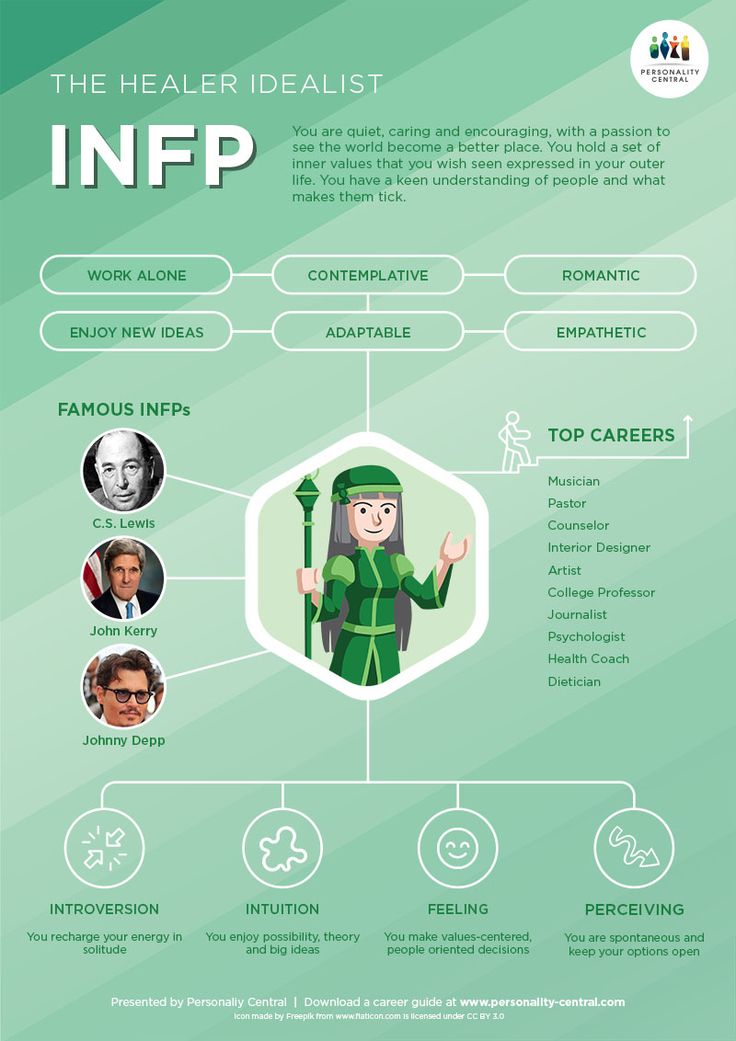
Decision-making basis (judgment)
F (Feeling, feeling) - decisions are made "with the heart", emotionally, focused on people's values, and not on abstract logic. Such people are sympathetic and empathetic. They are fascinated by humanitarian activities (literature, art). nine0005
J (Judging, judgment) - a rational function is directed to the outside world, that is, a judgment: thinking or feeling. Such people act on preliminary preparation, prefer to plan everything in advance, try to eliminate chaos. Unexpected changes unsettle them.
Method of action in the outside world
P (Perception, perception) - an irrational function is directed to the outside world, that is, perception: sensation or intuition. Such people strive to live flexible and spontaneous, act according to circumstances, easily adapt to unexpected changes.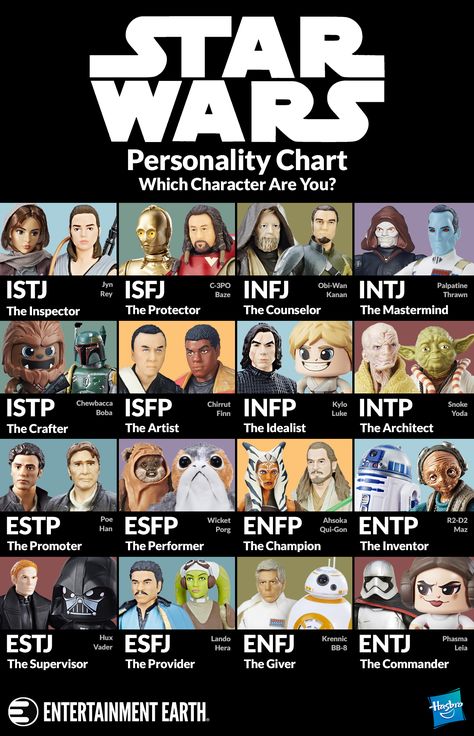 Action according to the plan constrains and limits them. nine0005
Action according to the plan constrains and limits them. nine0005
For extroverts, the main function is directed to the outside world. For introverts, the main function is directed to the inner world, and the mode of action in the outside world is determined by the auxiliary function. This is the main confusion between the Myers-Briggs typology and socionics, since in the socionic model the main function is always directed to the outside world, even for introverts.
In the Myers-Briggs typology, such preferences in dichotomies are characteristic of the type: INFP.
INFP
Mediator
Poetic, kind and altruistic people, always ready to help a good cause.
By Keirsey:
type: Healer (INFP) Role: Advocate (NFP) Lawyer,
temperament: Idealist (NF) Idealist.
INFP
According to Kroeger: Muser - Contemplator
People of this type have a very vivid imagination, a poetic nature, and much of what they do bears the imprint of autobiography.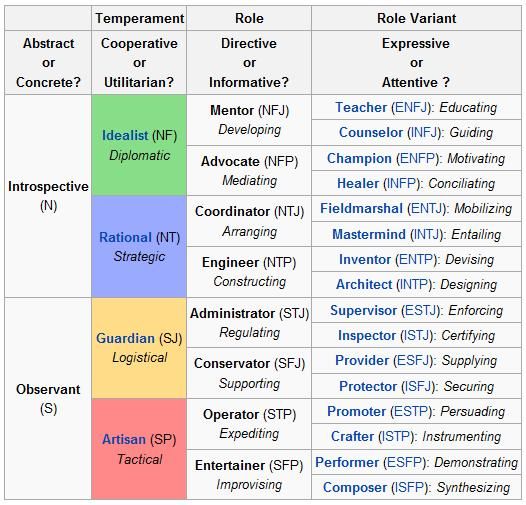 INFP-type is one of the most common among writers and people involved in the fine arts (sculpture, music, theater, etc.). nine0005
INFP-type is one of the most common among writers and people involved in the fine arts (sculpture, music, theater, etc.). nine0005
Keirsey temperament
Intuitive-feeling (NF) - Apollo. Idealist - Idealist.
1. A phenomenal ability to work with people and bring out the best in them.
2. Strong need to help other people.
3. Spirituality, the search for the meaning of life.
4. Insight.
Combination of perception and judgment by Isabelle Briggs Myers
NF (intuition + feeling)
Humanities --- Opportunities for people (development of the company, team, coaches, mentors, trainers)
Search and realization of potential opportunities for people. Enthusiasm and insight.
In socionics such preferences in dichotomies are typical for the type:
Intuitive-ethical introvert (Yesenin).
Conscious strong functions. These are the strongest functions that reflect the very essence of man.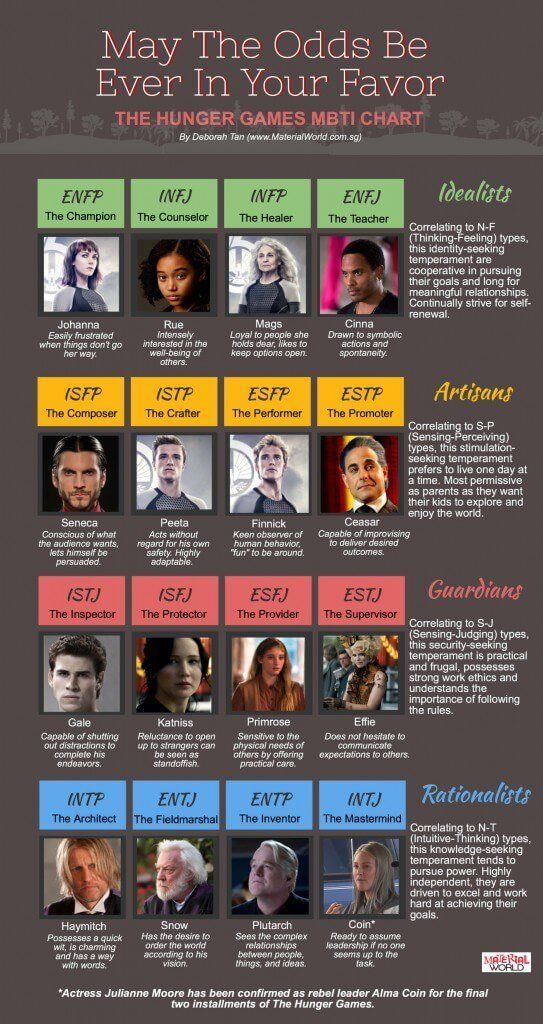
1 function - basic. The main and most powerful function by which a person perceives the world around him and which determines the program of action. nine0005
Yesenin and Balzac have white intuition (intuition of time), which means that he:
He perceives the world as a stream of various events and changes, and he cannot and does not want to perceive it differently. He knows how to effectively allocate his time, and anticipates the possible development of events. He knows that this is his greatest strength. Slowness, complete absence of fussiness, daydreaming, lightness.
2 function - creative. Strong but more flexible than the base function, can be developed and improvised, ready to go beyond. Function for creativity and self-realization. nine0005
For Dumas and Yesenin, this is black ethics (ethics of emotions), which means that he:
He knows how to understand his own and others' emotional state, knows how to show it.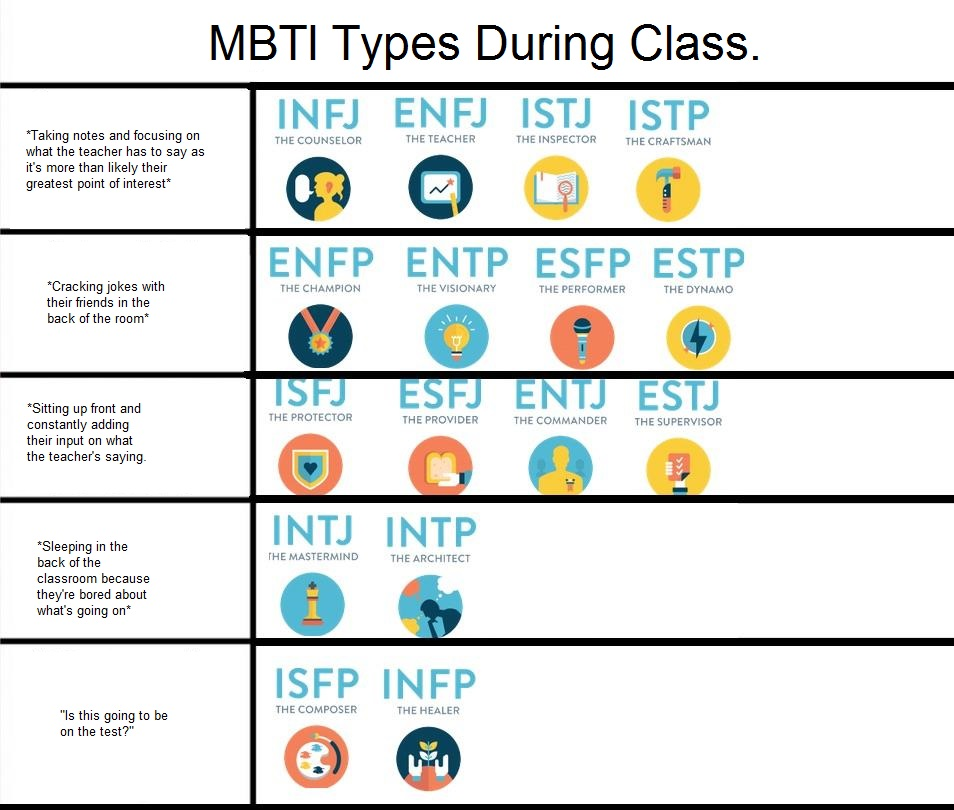 Gets from this benefit and incredible pleasure.
Gets from this benefit and incredible pleasure.
Characters
It is not immediately possible to identify the characteristic features of INFP characters. These are kind and naive dreamers, enthusiastic people, often playing key roles. true idealists. poetic nature. Imagination and insight. Morality and virtue. nine0005
Net Salamander
Luke Skywalker
Frodo Baggins
Shireteon
Peter Parker
Alice
Professor Treloni
VALL-I
Other types of characters (16 types of MBTI in Kinematographs).
Jung's "pure" type
Describing psychological types, Jung in his work does not pay attention at all to normal, balanced types that use an auxiliary function at their own discretion.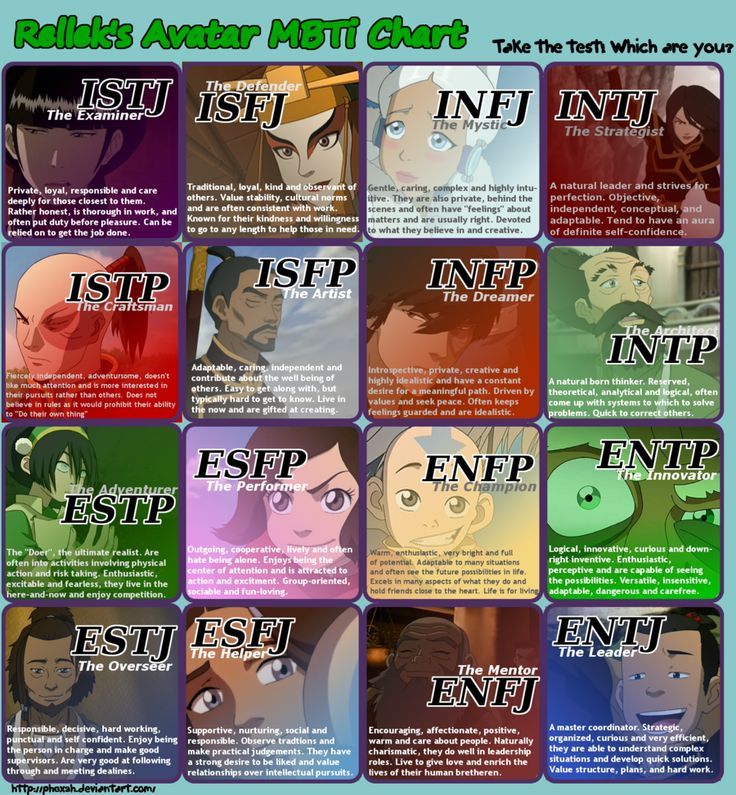 He depicts each type in extreme, sharp manifestations, with maximum contrasts between extraverted and introverted forms of behavior, and in connection with this he describes theoretical "pure" types with a poorly developed auxiliary function. nine0005
He depicts each type in extreme, sharp manifestations, with maximum contrasts between extraverted and introverted forms of behavior, and in connection with this he describes theoretical "pure" types with a poorly developed auxiliary function. nine0005
Ignoring the auxiliary function led, first of all, to distorted descriptions of introverted types. We already know that extraversion, that is, the external manifestations of personality, in introverts depends on an auxiliary function. In "pure" introverted types, the auxiliary function is not developed, so interaction with the outside world is difficult. Outwardly, we can only observe the attempts of the main function (directed in introverts to the inner world) to interact with the outside world. Thus, Jung's "pure" introvert types have practically no effect on the outside world. nine0005
"Pure" extraverted types have difficulty interacting with the inner world. Outwardly, we may not notice this. Therefore, the extraverted types described by Jung more or less coincide with the description of normal extraverted types.
Melancholic - "pure" introverted feeling type, in which the auxiliary function is not developed.
This is a rational type, since he makes a choice from what is happening on the basis of reasonable judgments. In contrast, the irrational type is guided by what exactly is happening at the moment. That is, for the rational type, reasonable judgments are more important than the perception of what is happening around. They consciously exclude everything random and disorderly from their lives. nine0005
Introverted feeling submits mainly to subjective preconditions, and attaches secondary importance to the object. It is a feeling that seems to devalue objects and therefore, in most cases, declares itself in a negative sense.
It is constantly looking for an image that does not actually occur, which it has, to a certain extent, seen before. It glides, as it were, without attention over objects that never correspond to its purpose. nine0005
In most cases, such people are silent, hard to reach, incomprehensible, often hidden under a childish or banal mask, and often also have a melancholic temperament.
Since this type in most cases seems cold and reserved, a superficial judgment easily denies any feeling in him. But it's in is fundamentally false, for feelings, though extensive, are intense. They develop in depth.
"I would not at all want the previous descriptions to give readers the impression that these types in such purity are relatively common in real life" (Psychological types. CG Jung). nine0005
psychotypes of consumers — Marketing on vc.ru
We have already talked about how we like to conduct various studies while working on projects using the rebranding of the Larsen Park cottage village as an example. In this material, we will dwell on the types of consumers in more detail - and at the same time, based on our data, we will try to figure out which type you are.
18,851 views
There are two types of people
Many jokes and folk wisdom begin with this phrase. But in fact, we distinguish four main types of consumers in accordance with their psychotypes:
- Traditionalists;
- Hedonists;
- Idealists;
- Rationalists.
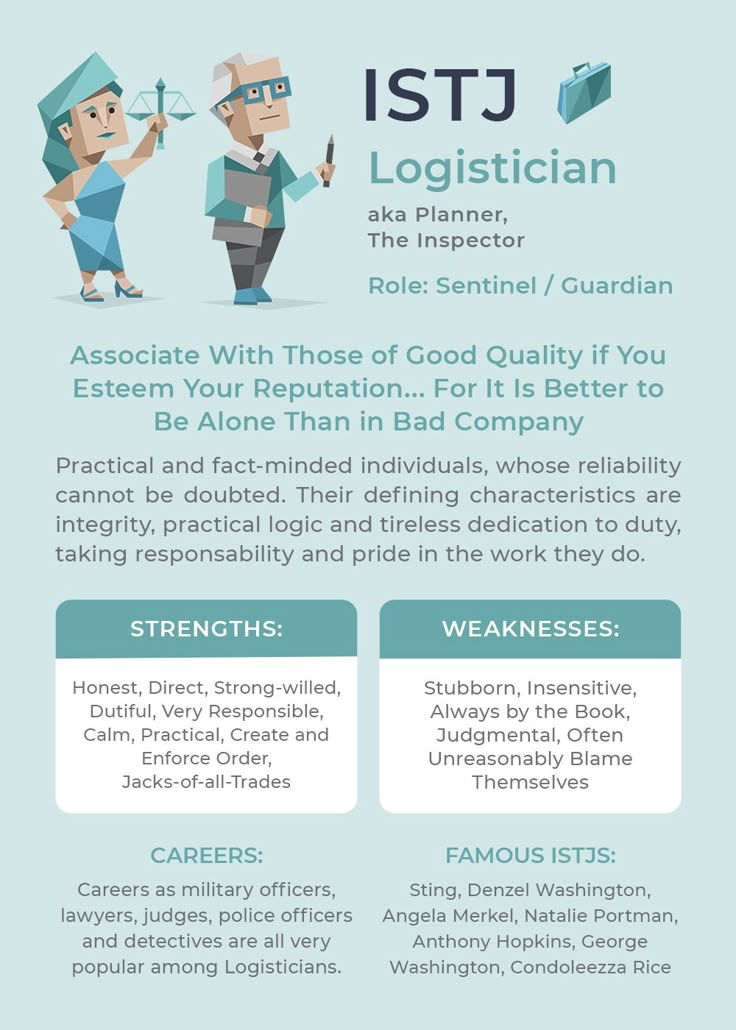
Something already becomes clear from the name, but we will tell you more about each one, so that it would be easier for you to recognize yourself.
Traditionalists
They work very hard and because of this they spend little time with their families. They value calmness, stability, adhere to a strict daily routine, love traditions very much and honor the family. nine0005
They see their role in ensuring the well-being of their family, therefore men of this psychotype are earners and protectors, and they also perform the social role of the head of the family. Women strive to create and maintain a family hearth. These people usually buy property as a way to invest and store money, which means they buy it rarely, but in all detail.
Traditionalists rest rather passively: either at home with relatives or in a narrow circle of friends, they love to travel out of town, dig in the garden, build or repair something. They love Soviet and Russian cinema, serials and comedies.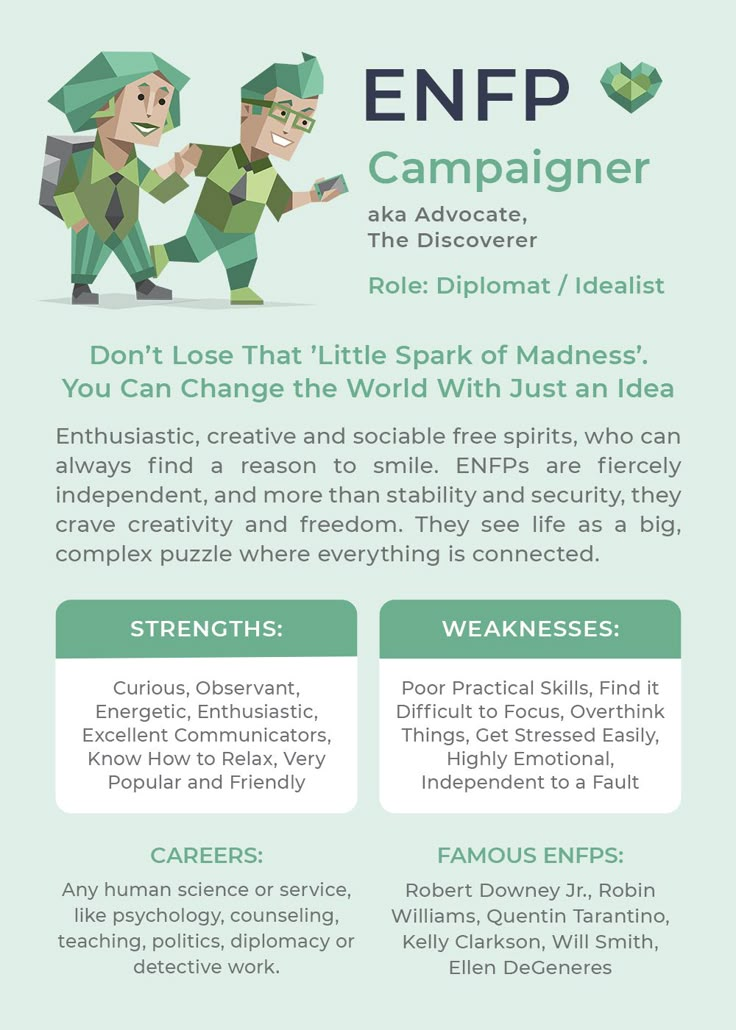 nine0005
nine0005
Personal development is not given much time, it is manifested in honing a skill or profession, they can go to advanced training courses if required at work. Of the events, they occasionally prefer concerts of their favorite performers, sometimes a theater, if Russian classics are staged. But they love sports - these are the most devoted fans, and they also make up the bulk of the people at the festivities.
Sports traditionalists usually remain in their youth - it's either weightlifting or martial arts. Team sports are also held in high esteem, but traditionalists can’t stand it when the rules change or when the judges make an unfair decision, in their opinion. nine0005
Travel mostly within their own country and to the same places. These are the people who are very fond of all inclusive, because a difficult holiday is not for traditionalists.
Hedonists
This is literally speaking name. They adore pleasures and momentary joys, are not shy in their desires, and sometimes they are ready to sacrifice work for the sake of obtaining pleasant emotions.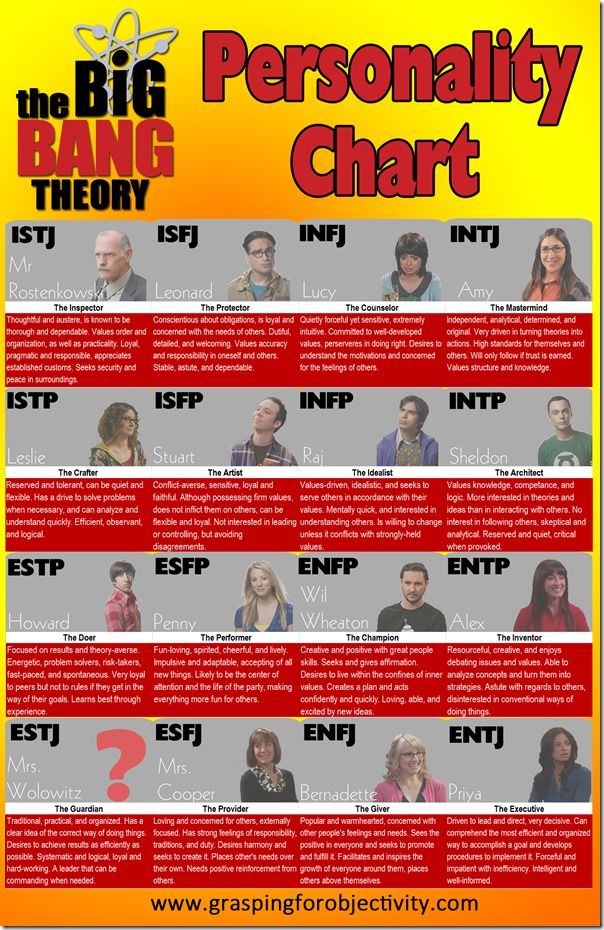 They believe that you need to get maximum pleasure from life, constantly move and not be a “gray mass”. They almost certainly have no idea how their day will end. nine0005
They believe that you need to get maximum pleasure from life, constantly move and not be a “gray mass”. They almost certainly have no idea how their day will end. nine0005
They value family and loved ones, but at the same time they are fond of travel and entertainment. Large purchases are made impulsively, under the influence of trends and fashion. They do not like purchases that involve a long digging in the papers, because they want "here" and "now".
They have free time, which they are happy to spend on entertainment. Moreover, as a rule, they rest in a company, because they cannot realize demonstrative behavior alone. The rest is varied - it is almost impossible to catch hedonists in the same place twice. nine0005
Read mostly non-fiction and entertainment literature, but do not devote too much time to reading. Interesting are extensive - they rarely get hung up on any one topic, but a wide range of interests is balanced by the superficiality of knowledge. They go to personal trainings, they can catch fire in some new direction and start studying it, but they dive shallowly and for a short time.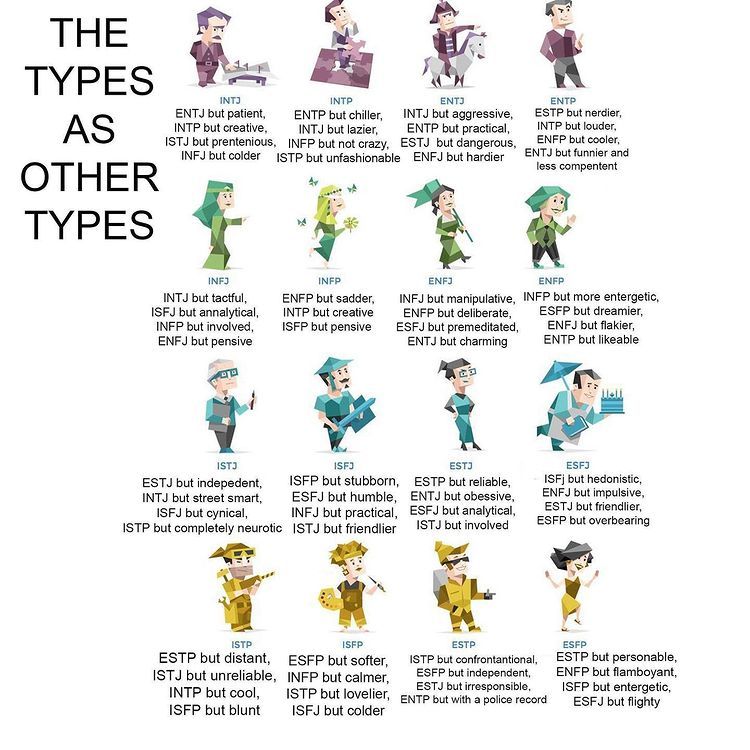
They go to concerts, it also happens that it is not planned. As a rule, these are foreign groups, provocative or fashionable performances. They can also go to sporting events if this sport is considered fashionable in the company of hedonists. They don’t really like folk festivals, but if they visit, they become the epicenter of attention there. nine0005
People go to gyms for a beautiful figure and for a portion of attention and new acquaintances. But there is no serious sport in the life of hedonists - after all, for this you need to dive, withstand serious and monotonous loads.
They love to travel, and each time to new places. It is best if the rest is active and interesting - an excursion, SPA treatments, tourism, dancing and delicious food.
Idealists
They live very calmly and measuredly, social life is not very active. They spend a lot of time with family and friends; for idealists, this is support and security. They concentrate on their feelings and experiences, pay special attention to spiritual and emotional growth. They believe that a person should live in love and harmony, without quarrels and conflicts. nine0005
They see their role in ensuring the well-being of the family through the development of spiritual intimacy. They also consider it important to be in harmony with the world and care for nature.
They prefer quick and inexpensive purchases, because doubts, worries and financial opportunities interfere with spending money on something large and expensive.
All free time is spent either with the family or with one's hobby (which is usually related to needlework or creativity). They like to read novels, poetry, lyrics, they can take a walk in the park or sit behind a psychological book and watch educational programs. It is unlikely that they will rest in a large and noisy company. nine0005
Idealists strive for development, they can get carried away by some topic and begin to immerse themselves in it. But they will not study very deeply or for a long time. They study only “by inspiration”, sometimes they can go to an interesting lecture or master class, but even there they will keep quiet, “in the crowd”.
If they go to concerts, then only to chamber, local ones. They will not go to noisy events, because they do not like the crowd and unpredictable actions, they will feel uncomfortable.
Indifferent to sports. Maximum - something relaxing, like yoga or Pilates, certainly in mini-groups. nine0005
Travel not very far, most likely to countries with mild climates. They relax passively, seeing the sights, studying the local culture and being inspired by the beautiful landscapes.
Rationalists
It is often joked about such people that they “I see the goal, I see no obstacles.” It is believed that the task of a person is to work hard and achieve brilliant results. They live dynamically, but according to a plan.
Work eats up a lot of time, often even to the detriment of family affairs. But rationalists perceive it both as a source of income and as an opportunity for self-realization. They attach great importance to career growth. nine0005
They buy property consciously, in accordance with their goals.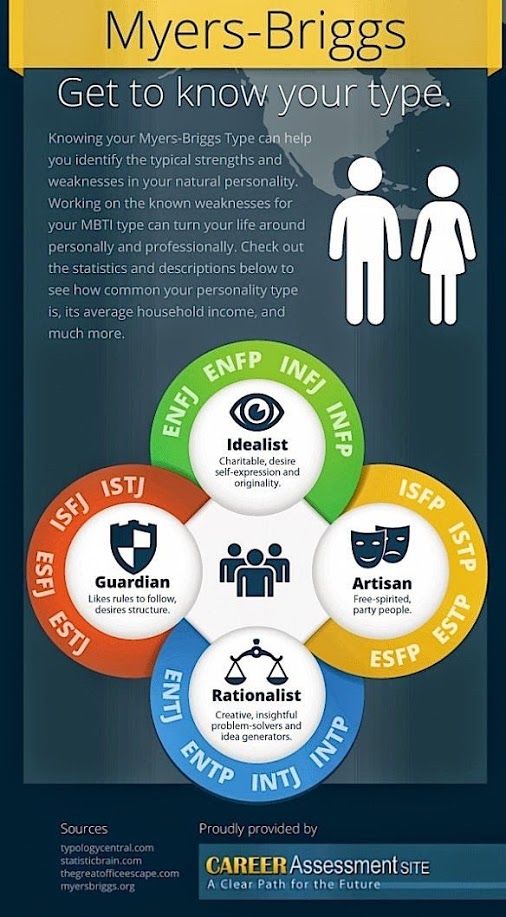 If you want to make the right impression, you can buy a prestigious brand item or an expensive car.
If you want to make the right impression, you can buy a prestigious brand item or an expensive car.
There is almost no free time in the conventional sense, so they always try to get the most out of every minute - for example, go out of town or learn something new. A hard day at work makes them seek relaxation, so they often prefer to relax in nature.
They develop through reading business literature, go to industry conferences, to lectures by experts and speakers who are ideologically close to rationalists. nine0005
Sometimes they can go to an exhibition or a museum, but more often they just go to the cinema as a way of relaxing. They can purposefully go to a concert or a performance with a deep meaning. They do not go to sporting events and mass festivities.
They can play sports, and if they do it as a recreation, then sports become a hobby. If they purposefully go to some kind of sport, then, most likely, pursuing personal goals. They prefer individual sports that require consistent development of skills. nine0005
Traveling is divided into two types. The first is active research. They love active or extreme tourism, which requires training, certain skills and equipment. For example, hiking in Altai, rock climbing, skiing or kayaking. The second is more balanced. These rationalists love unusual trips, for example, to visit some special theater or to study an unusual species of animal. By the way, both types can combine travel and business trips.
nine0002 I did not find myself in any of the psychotypes
This can happen if you have a mixed type. For example, hedonist and idealist. And on earth there is a very small number of people in whom all four types are combined - this is a rare quality.
How we got it all
See how different we are? And this is just a basic division into four psychotypes, but inside, for example, archetypes are hidden, which have dark and light sides and at least 24 behavior strategies! But let's not dig so deep for now - let's try to figure out how to use such information for business benefit using the example of our project to create and promote the brand of the Larsen Park cottage village.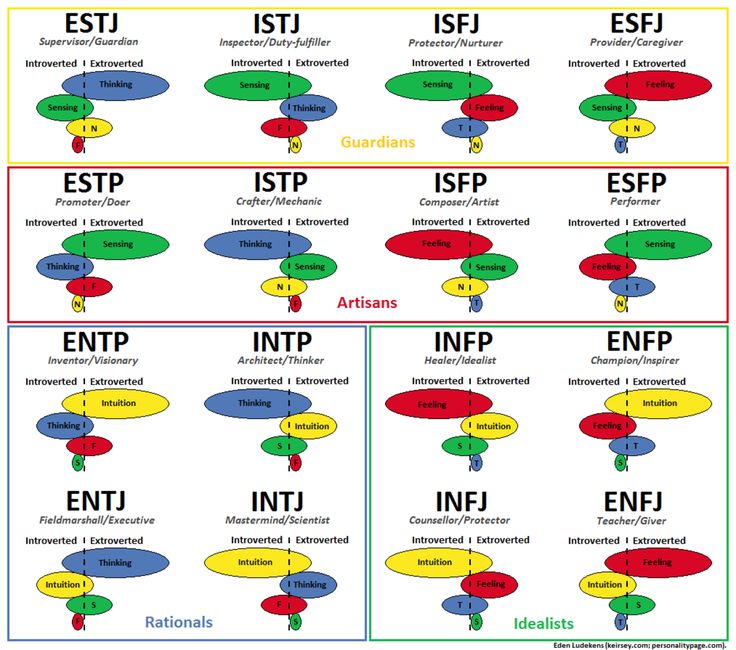 nine0005
nine0005
So, we have four psychotypes, and these are:
- four completely different strategies of behavior and survival;
- four different worldviews;
- four fundamentally different points of view.
How will these people buy a house? Definitely it will be four completely different scenarios.
Our strategists at Opencore are starting the real detective work - they have to conduct in-depth interviews with people who bought a country house in our price segment no later than a year ago. They need to determine the psychoprofile of the respondent, formulate his purchase scenario, compare it with other scenarios of the same psychotype in order to find what is common, what are the differences, are there any similarities with the scenarios of other psychotypes. nine0005
This is how we describe the buying strategy, which is characteristic of the four basic psychotypes for the market.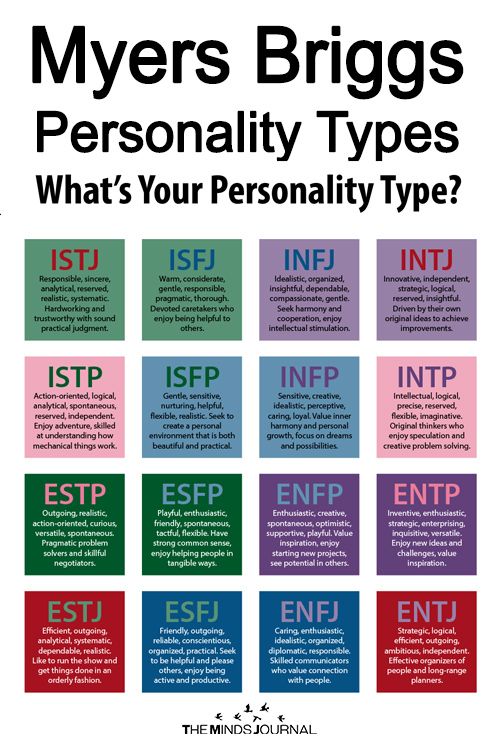 For some markets, it is necessary to allocate more scenarios, for this there is an additional segmentation into archetypes. Not only the purchase strategy depends on the psychotype, but also the house itself, how it will be used, and many other factors.
For some markets, it is necessary to allocate more scenarios, for this there is an additional segmentation into archetypes. Not only the purchase strategy depends on the psychotype, but also the house itself, how it will be used, and many other factors.
How it helps us
We really learn a lot of information about a potential consumer. But how can we apply it in terms of building a new brand? Everything is very simple. Thanks to in-depth interviews, we can find out how people of different categories will behave in certain situations. For example, we can evaluate brand installs. nine0005
For example, we learn that the brand's target audience is traditionalists. They think so - "guarantee and fulfill!". You need to speak with them in a simple everyday language, monosyllabic, through stereotypes and patterns. They like to look at center-oriented images, realistic images, simple, open and contrasting colors. If we return to our case with suburban real estate, here is what it would look like for traditionalists:
If our audience is hedonists . This psychotype is about “here and now!”. This means that we already know how to talk to them - after all, hedonists love beautiful ornate speech, with many metaphors and epithets, emotional, using borrowed words. They love dynamic compositions and symbolic images. And now we already know how to build advertising communications:
This psychotype is about “here and now!”. This means that we already know how to talk to them - after all, hedonists love beautiful ornate speech, with many metaphors and epithets, emotional, using borrowed words. They love dynamic compositions and symbolic images. And now we already know how to build advertising communications:
If we are talking about idealists , then they believe that “if you go slower, you will continue”. We know that idealists love sensual speech, moderate detail, lots of adjectives. They like to look at balanced compositions with low dynamics, complex muted colors and moderate contrast. And again, we know how to build communication - communication for idealists in suburban real estate would be like this:
Rationalists adherents of the creed "If you don't know, don't speak!". They love a clear and understandable language without vivid emotions, with complex terms and professional vocabulary. They look with pleasure at mixed compositions, which are dominated by stable structures, moderate dynamics and contrast, and muted colors.